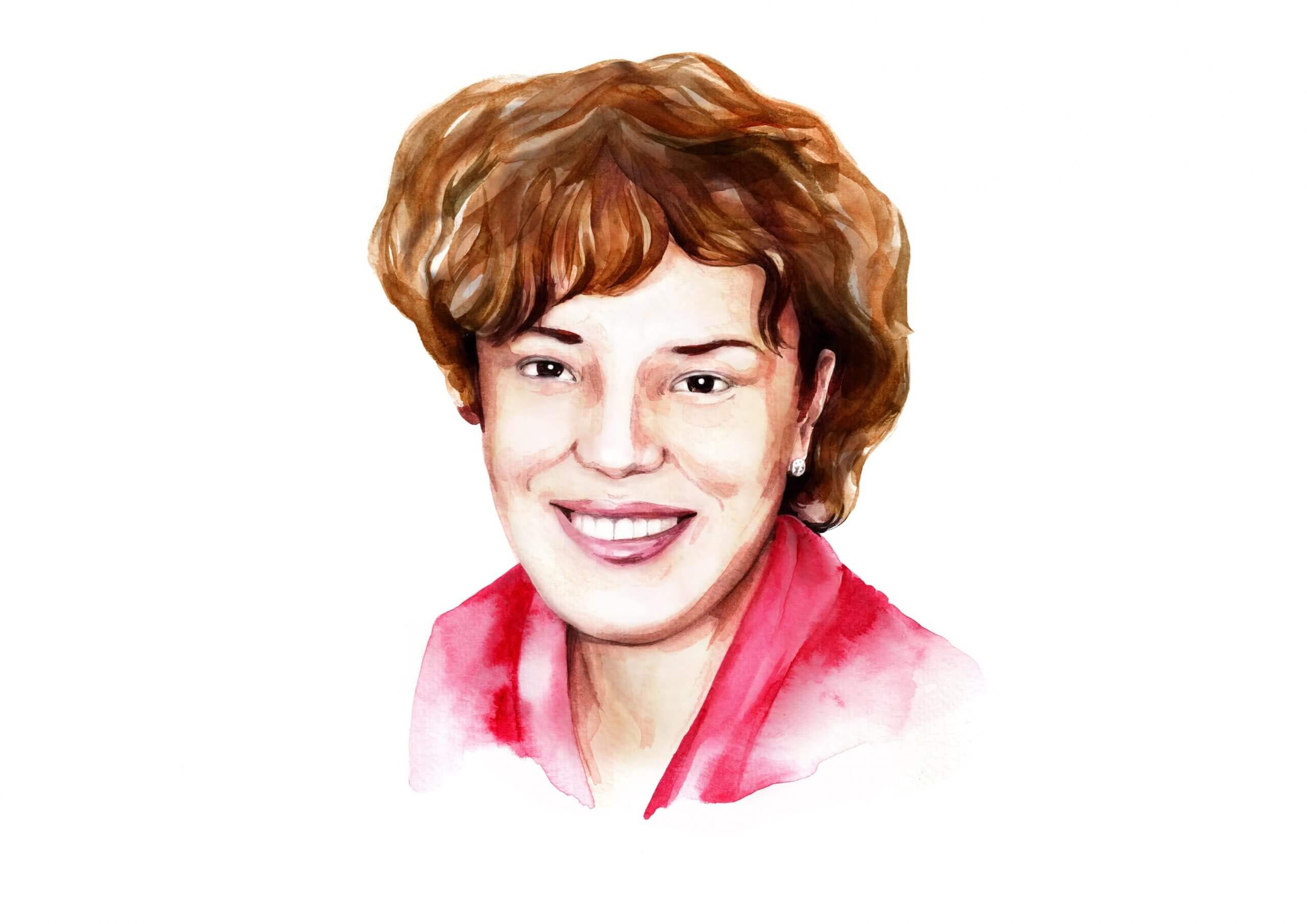
“Listen to your inner voice, explore, try things, do your best — always do your best because you deserve the learning that comes from that and they deserve the outcome,” said Liz Herth.
Liz Herth was adopted by an African American Bahá’í mother and father in the small town of Niles, Michigan. Liz grew up in a small family of four. Her mother was a school teacher and her father was a probation officer — the first and only African Americans in their respective departments. Her grandfather was a dentist who owned many properties in Niles. Niles had pockets of African Americans, but it was her grandpa’s efforts that truly paved the way for more Black families to settle in the neighborhood. He sold parcels he had purchased to his friends and family from the army. At the time, the United States government had passed the G.I. Bill which aimed to help American World War II veterans adjust to civilian life. Black veterans, however, were not able to make use of the housing provisions of the G.I. Bill because banks generally would not make loans for mortgages in Black neighborhoods, and African Americans were excluded from the suburbs by a combination of deed covenants and informal racism. While Niles was not the diverse population of Detroit in any stretch of the imagination, Liz liked her town because she had her Bahá’í community.
The Bahá’í faith is a universal religion with distinct cultural manifestations all over the globe. Her grandfather had the opportunity to learn the faith from Lewis Gregory; one of the founding teachers and administrators of the Bahá’í Faith in the United States and a pioneer of interracial reconciliation. Being raised Baha’i, Liz grew up in a rich environment around a very diverse group of people. She remembers “we always had people of all walks of life in our home for dinner or for tea or for brunch or for Bridge or Canasta or Yatze or whatever.”
Originally her parents were not Bahá’í, when they got married they wanted to settle in a church. They went to a Lutheran Church and the Lutheran minister approached them after the service and invited them not to return. He told them they would probably feel more comfortable at the Lutheran church at the end of the street where the African Americans gathered. “My parents didn’t feel welcomed by that notion and so they decided to become Bahá’í because of the oneness.”
Being adopted, Liz was forced to learn about herself outside of genetic influences. “I never really knew who I was because there wasn’t anything in the family that I could relate to, like ‘oh, she has my hands or he has my eyes,’ or ‘oh, that’s how I should wear my hair because she has hair like me or what am I good at? What are my strengths?’”
During her school years, Liz began learning what her capacities were. She discovered she was particularly good at math, a skill she might not have tapped into until a Black Native American joined her school board. He noticed that none of the AP classes had any African Americans students in them even though they had high grades. He fought to get the AP classrooms open and eventually Liz did get into a couple of them. Unfortunately, Liz did not like them, “I asked to come out of them because I found out that if the professors don’t want you in the classroom, they will make it very difficult for you. They would call on you and kind of pick on you and of course, kids would laugh, and I just didn’t want to deal with that.” However, Liz had one teacher who did not have the same teaching style. Her math teacher acknowledged her accomplishments and answered all her questions “I really liked that class because of how he treated others and how he treated me.” The same teacher later became Liz’s track coach in high school and he would often invite her to train with the boy’s track team.
Growing up in a small town also did not help Liz uncover her interests right away. She watched businesses boom all around her and thought she liked business but she was not sure exactly what she wanted to do. “I knew I liked the outdoors, I knew I liked small things like I loved horses, I love being outside. I liked being helpful. I really never knew what would translate into a career.” She considered being an airline stewardess so she could travel and explore the world outside of her small town but coming from a highly educated family with many of her relatives in strong roles, Liz felt like she needed to do something more meritorious.
In college, at Davenport University, Liz explored the realm of computer science, marketing, and business administration and discovered she was naturally very good in those courses. In fact, she was approached by the university to stay for graduate school and teach freshmen computer science and other topics. On the first day of college, Liz also met her husband. They dated for two years, married, finished college together, and later pursued their Master’s degrees. In her last year of graduate school, Liz became pregnant and gave birth during finals. Without realizing she fell into being a mother, a wife, and working full time. She worked for a television station in the accounting department. Her job was to tabulate accounts. Companies would pay top dollar to advertise on the TV network and Liz oversaw checks and balances. While at the TV station she and her husband started expecting their second child and she left for maternity leave. When she returned, she was transferred to the newsroom filling the role of an office manager. In this position, Liz was tasked with making sure film was cataloged, timecards were in and at one point she even began writing scripts. She was promoted to VP’s assistant.
When a new outpatient mental health position opened outside of Grand Rapids, Michigan Liz and her husband packed their bags and applied for the same job. Liz was thrilled to get the job. It was in the business side of outpatient mental health which had never been done before. She was the first non-clinical person hired in this model as the marketing and finance manager. In this role, Liz worked on mental health contracts and licensures. She was able to double the size of the outpatient mental health program and reduce the company’s debt by 17 million dollars.
After two years in mental health, Liz transitioned to physical health at Butterworth Health. She was hired in the marketing department and while she was not very interested in marketing, she was fascinated by market research. “Here, I strengthened my capacity in doing surveys, conducting strategic analysis, strategic planning and after a year they put me in charge of the physician practice, placement, and development.”
After 12 years, Liz left the health field and went to work for the Bahá’í National Center. “I had always wanted to work for National. I wanted to serve the Faith in an administrative kind of way, whether it’s sweeping floors or stapling papers, or counting things. I sent my resume in and they responded and invited me in.” The BNC is the Administrative Center for the Bahá’ís of the United States community. They brought her in as an assistant to the National Teaching Committee. This Committee learned about categorizing what was occurring within the National Bahá’í community. In this role, she spent lots of time conducting research and analysis of all kinds, whether tracking down the data or analyzing it. After six months, Liz was appointed National Statistics Officer and continues to serve the Bahá’í National Center today. Here, she focuses on expanding the national data-gathering enterprise and improving data integrity. All record-keeping within the community is done through this Center, and therefore through Liz.
In many ways, Liz has come full circle in her current position. Her own meandering path in life has supplied her with the ability to connect with her roots and discover her inner voice.
